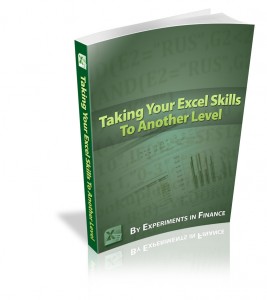In the 1980’s, a prominent U.S. magazine predicted the “Death of the Stock Market.” It was written during a major downturn in the U.S. and global economies. It was also written right before a major economic recovery that would last for years. If you had heeded the warning of the “experts” and sold at that low point, you would have likely lost most of your investment, rather than doubling or tripling your investments over the next few years.
Another example of media (expert) bearishness is evident in this profile of thirty years of Time Magazine covers. Almost every year for the past thirty years Time Magazine has featured a cover demonstrating how bad the present state of the economy is. If it’s not a recession then it’s worries about inflation, or concerns about trade deficits, and on and on. Are these accurate reflections of the economy, or are they what help to sell more issues of a magazine?
Finally, who doesn’t recall the time “monkeys throwing darts” outguessed the Wall Street Journal investing experts?
The point: the economy is too complex for any of us to fully understand. The only thing that has been consistently true is that we can never fully anticipate the future. Unexpected things are always occurring, and when they do, they often change everything.
When I used to read more magazines and check on my stocks every day, my risk tolerance would decrease exponentially. Of course, being informed is important. But at the same time, some perspective is needed. Particularly in these modern times, where the media is known to sound the alarms a little too often.
The same thing is true for picking careers. By the time you complete your education in the “hot” field it may be cold. That’s why I believe there is no better compass than the one inside each of us. Certain rules, principles and philosophies are timeless, but there are so many inputs that we still need to view everything through our own judgment—our own inner compass.
Moreover, our personal goals are often quite personal.
For instance, when my Wife and I bought our house six months ago, I figured interest rates would keep going down. I also figured the value of the house might not have hit its bottom. Time has proven I was correct in both these assumptions–at least where we live. But we were tired of renting, planned on sticking in our house for the long-term, and frankly ignored the “experts.” It may not have made good financial business sense, but we did it anyway, because that’s what we thought right under our own particular circumstances. The thought of staying in an apartment we hated for another 2-3 years wasn’t worth the benefit of gaining more time to eye the housing market.
Likewise, when I left my job during one of the worst Recessions in U.S., history to start my own office, the empirical data suggested likely failure. While only time will tell the ultimate outcome, so far, I’ve been happier than ever before in my chosen profession.
Conclusion
It’s nice to be well-informed, but ultimately it’s up to us to know what’s in our own best interests. When you go about being well-informed, it might not hurt to remember that the media can often cry wolf. In other words, sometimes what you should fear the most: is the so called experts themselves.
***************************************************
Look Good at Work and Become Indispensable Become an Excel Pro and Impress Your Boss

***************************************************


Beats Headphones
Everything is very open with a clear description of the issues.
It was definitely informative. Your website is useful.
Thank you for sharing!